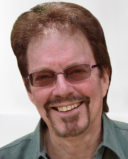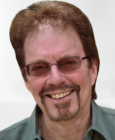Free Will
The Question of Free Will in Psychotherapy (and Out of It)
How seriously should we take assaults by science on free will?
Posted January 2, 2024 Reviewed by Ray Parker
Key points
- Civilization, including psychotherapy, rests heavily on the supposition of free will.
- Eminent scientists insist that free will is an illusion.
- We can think of the brain as choosing not through words and thoughts but through biological processes.
- Humankind is best served by behaving as if people have free will.
If one idea is central to psychotherapy, it is that people choose and have at least partial control of and responsibility for their own actions. Making wise choices gives a person's life its best chance to go well.
Foolish choices increase the chance that it will go badly. Civilization—law, ethics, art, science, everything—rests on the supposition that human choice, i.e., free will, exists. Without it, Albert Einstein deserves no credit; the BTK Killer deserves no blame. Without free will, psychotherapy is a sham.
Robert Sapolsky, Stanford University professor of biology, neurology, neurological science, and neurosurgery, in his new book Determined: A Science of Life Without Free Will, states categorically that free will is an illusion. His position is not new.
Free will has been questioned for centuries. Sapolsky does a good job presenting arguments against it but does not advance radically new ones. He suggests that advances in many different areas of science, taken together, prove that free will does not exist and our choices are determined solely by brain biology.
The idea is simple: Humans are biological machines. Any action that the machine takes has biological causes. These causes have biological causes, and those causes have gone on and on back to the Big Bang. There is no need to posit a non-biological "self" that chooses.
Neurotransmitters, hormones, proteins, electricity—brain biology decides, not some "ghost in the machine." Even the feeling that we have free will is, Sapolsky believes, biologically determined.
He does not claim that everything that happens is predictable. There is too much uncertainty in the world for that. Environmental factors, for instance, can change the brain. The course of a human life is not determined at birth. After the fact, however, we can see how any outcome was brought about by biology, not choice.
Sapolsky's position is shared by many other eminent scientists. I won't attempt to refute their findings. Instead, I propose that even assuming these scientists are right, humans still have something like free will.
The common sense model of choosing—the brain consciously considers a problem, decides, and directs the body to act—was invalidated long ago. Friedrich Nietzsche concluded that the brain decides intuitively and emotionally and then rationalizes the decision.
Sigmund Freud realized that decisions were directed by the "unconscious." Libet et al. demonstrated that "readiness potential" shows that the brain knows what it will choose well before the decision reaches consciousness. However far back in our decision-chain, the cause is determined biologically.
Thought, though, is a biological process. Emotion and learning are, too. All of these processes change the brain. Instead of deciding directly via words, thoughts, or feelings, we can think of the brain as deciding via biochemical processes. If these change, our choices may change too—almost as in old-fashioned free will.
Even free-will deniers admit that consciousness, an emergent property of the human brain's activities, still eludes understanding. It, therefore, can't be ruled out as a possible source of free will.
Consider, too, what might happen if conflicting biochemical signals balance perfectly. Asked to choose between two identical M&M's chocolates, I pick one or the other virtually by chance. Or I could decide to choose by flipping a coin.
Children may be born with biological predispositions toward mathematics or language, painting or music, basketball or chess. They may be naturally cooperative and kind or dictatorial and cruel. Learning can biochemically strengthen or weaken these brain propensities. By placing themselves in one situation or another, people choose in what ways their brains will be modified.
The girl with musical talent who takes lessons and practices will become a better cellist than the girl who does not. The boy who stays in school will likely do better than the one who drops out and joins a gang. Thoughts and feelings generated in psychotherapy can alter patients' brains so that they put themselves in situations that further modify their brains. Their choices, although still technically determined, are not what they would otherwise have been.
It can be argued that the propensity to choose one situation over another is also biologically determined. Yet even if, ultimately, we don't have free will, I believe it's best to act as if we do.
Sapolsky envisions a world where no one is praised or blamed for being what they are since this is determined not by life choices but by luck. In that world, high achievers would not feel pride in their accomplishments but gratitude; the unlucky would not be punished but receive the help they need.
It sounds good. Too good. I strongly doubt that such a utopia would arise in a world that denies personal responsibility. Humans evolved as predators, some less so than others, but still predators. This propensity to prey is biologically determined.
John Lennon's Imagine asks us to dream about a world of kindness, generosity, and no predation. The song does not claim that such a world will be achieved. Woody Allen writes, more realistically, "And the lion shall lie down with the lamb. But the lamb won't get much sleep."
Physics declares that what we see as a brick wall is nothing like a brick wall in whatever reality underlies what our brains evolved to perceive. Yet we are well-advised not to run into brick walls. In the world we live in, there are still brick walls.
Even if our choices are fully determined, we are well-advised not to abandon the idea of free will. In the human world, free will seems almost as real as a brick wall. It is the glue that holds our social structures together and our psyches, too. It fends off chaos and offers the gift of possibility. Without that gift, I, for one, would not want to get out of bed.
In the words of Isaac Bashevis Singer, "We must believe in free will. We have no choice."
References
Libet, B., Gleason C.A., Wright E.W., Pearl D.K. (1983) Time of conscious intention to act in relation to onset of cerebral activity (readiness-potential). The unconscious initiation of a freely voluntary act. Brain 106 (3).
Sapolsky, R. (2023). Determined: A Science of Life Without Free Will. New York, NY. Penguin Press.
Wittmann, M. (2023), Why Free Will Is Real. New York, NY. Psychology Today Blog.




